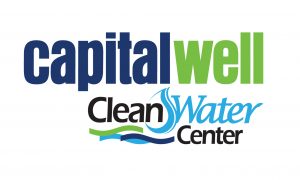WHY? Because...WATER IS LIFE!
At Capital Well Clean Water Center WATER IS OUR LIFE. Besides being the only focus of our entire business, we know that SAFE, CLEAN WATER is foundational for health in our world. We believe our partnership with THE WATER PROJECT is the perfect way to give back and "practice what we preach" regarding real and sustainable access to safe, clean water for the world we live in.
We are excited to support this local New Hampshire-based charity providing safe, clean, and reliable water projects in the developing world! We believe EVERYONE deserves access to safe, clean water. So, for every water filter unit we sell, we will donate $25 in our customer’s name to The Water Project. Every customer will be able to see the actual clean water project that their purchase helps fund. For over ten years, The Water Project has helped communities gain access to safe, clean water by providing training, expertise, and financial support for water point construction through their staff and implementing partners. In that time, The Water Project has provided a pathway to clean water for over 500,000 people, and we’re proud to lend our hands to help even more. Our goal for this year (2018) is to raise $50,000 through our fundraising campaigns and water filtration unit sales.
Lack of access to safe water is a harsh reality for millions. Every day in countless communities around the world, millions of women and girls walk for miles on end, to gather and carry water. Combine this with daily food shortages, limited access to education, lack of sanitation facilities, unsafe hygiene habits and disabling illnesses, which often lead to death, and it’s easy to see how difficult it is to escape the cycle of inequality and poverty.
The SCARY realities...
663 million people have no access to safe water— that’s equal to the combined populations of the United States, Russia, Japan, France, Italy and Canada. It is hard to believe that these facts exist in modern society. But they are TOO REAL for way too many people.
2.4 billion people, ROUGHLY 34% OF THE WORLD’S POPULATION, do not have access to improved sanitation.
To collect water, women in Asia and Africa must walk an average of 3.7 miles, roughly equal to the length of 55 NFL football fields.
The world’s population has tripled over the last century, while water use has multiplied by 7.
If all the water on earth could fit in a 5-liter bucket, less than 1 teaspoon would be accessible fresh water.
1.8 billion people COULD BE LIVING IN ABSOLUTE SCARCITY BY 2025, WHILE two-thirds OF the global population could experience water stress.
Every minute, a child dies from a diarrheal disease caused by contaminated water and poor sanitation.
The impact of diarrheal diseases on children is greater than that of HIV/AIDS, malaria and tuberculosis combined.
50% of malnutrition is related to repeated diarrhea or intestinal nematode infections as a result of unclean water, inadequate sanitation or poor hygiene.
$1 spent on sanitation yields a $9 return, by keeping people healthier and more productive.
Water-related illness has been estimated to cause the loss of 443 million school days each year, the equivalent of 615,000 kids missing all 4 years of high school.
Unsafe water and sanitation are estimated to cause global economic losses of around $260 BILLION annually.
Worldwide, there are more people who own cell phones than have access to toilets.
Almost 2 in every 3 people without access to safe water survive on less than $2 A day.
Inadequate management of urban, industrial, and agricultural wastewater means the drinking-water of hundreds of millions of people is dangerously contaminated or chemically polluted.
Diarrhea is the most widely known disease linked to contaminated food and water, but there are other hazards. Almost 240 million people are affected by schistosomiasis – an acute and chronic disease caused by parasitic worms contracted through exposure to infested water.
In many parts of the world, insects that live or breed in water carry and transmit diseases such as dengue fever. Some of these insects, known as vectors, breed in clean, rather than dirty water, and household drinking water containers can serve as breeding grounds. The simple intervention of covering water storage containers can reduce vector breeding and may also reduce fecal contamination of water at the household level.
Please join us in this awesome mission to help create safe, clean, sustainable water solutions for the people and places that need it the most!
Most sincerely,
Capital Well Clean Water Center

Donated $70.28 on 06/28/19
Donated $34.00 on 03/23/19
Donated $68.00 on 03/22/19
Donated $100.00 on 10/18/18
Donated $400.00 on 10/09/18
Donated $111.44 on 06/29/18
Donated $103.20 on 06/28/18
Donated $1000.00 on 05/18/18
Donated $70.28 on 05/18/18